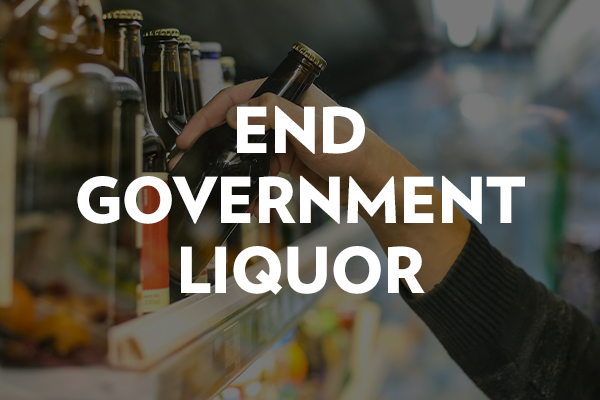Media

PLCB Makes Pa. National Loser in Liquor Sales & Tax Revenue
Aug 4, 2020, Harrisburg, Pa. — A new report from the National Alcoholic Beverage Control Association (NABCA) shows June spirits sales were up compared to last year in every state the association tracks—except Pennsylvania.
According to the report, June nine-liter spirits case sales grew 13.1% in control states over the same sales period last year.
Meanwhile, Pennsylvania saw sales drop -4.6% compared to June 2019, which tracks closely with an Independent Fiscal Office report showing June liquor tax revenue was down 5.3%.
Pennsylvania was a standout loser in liquor sales among control states, and not only in June: The same results were found in March. In April, when business shutdowns were sweeping the nation, New Hampshire joined Pennsylvania in the negative, although with a much more modest negative growth rate of -26% compared to Pennsylvania’s -90.5%. And in May, the data showed Iowa’s growth rate was -2.1%, Michigan’s was -7.2%, Utah’s was -12.8%, and Pennsylvania’s -37%.
“It’s dumbfounding that Pennsylvania’s wine and liquor industry is still controlled by a government liquor monopoly,” said Commonwealth Foundation Policy Analyst Tirzah Duren. “Forcing an entire sector of our economy to be funneled through this archaic system kills jobs, hurts small businesses, and makes our state deficit problem even worse—and this is demonstrated in the data.”
In total, liquor tax collections have declined by more than $16 million in 2019-20, compared to the previous year.
New IFO tax revenue data for July showed a small uptick in monthly liquor tax revenue. The IFO attributes much of it to “pent up demand.” However, even with demand spurred by federal stimulus reflected in the July data, liquor tax revenue still trailed other sources of tax revenue. Overall, sales tax collections were up 36% and motor vehicle sales taxes up 35%, but liquor taxes were only up 6.5%, after state stores reopened.
“Local small businesses, including restaurants, hotels, shops, event planners, wineries, and distributors, are all constrained in some way by a bureaucracy,” continued Duren. “The fact that the governor could stop over 90% of liquor sales on a whim shows just how much of a grip the PLCB has on so much of Pennsylvania’s economy.”
Recognizing that a solution is needed, lawmakers introduced several liquor reform bills this spring:
- Rep. O’Neal’s HB 2547 would fully privatize the state wine and spirits system.
- Rep. O’Neal’s HB 1469 and Sen. Stefano’s SB 880 would allow wine and spirits to be sold by restaurants and hotels.
- Sen. Yaw’s SB 548 would create a franchise store system.
- Sen. Stefano’s SB 916 and Rep. Reese’ HB 1470 would allow beer distributors to sell wine and liquor.
Commonwealth Foundation experts are available for comment. Please contact Michael Torres at 850-619-2737 or [email protected] to schedule an interview.
# # #
The Commonwealth Foundation transforms free-market ideas into public policies so all Pennsylvanians can flourish.